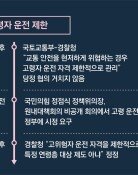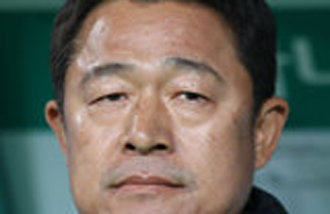Pres. Lee`s Key Policy Pledges See Major Shakeup
Pres. Lee`s Key Policy Pledges See Major Shakeup
Posted July. 23, 2008 09:31,
The Lee Myung-bak administration has canceled or delayed the implementation of key policy pledges since the Cabinet reshuffle last month and the general elections in April.
Even before taking power, the administration said its grand canal project could nurture industry and raise economic growth one percentage point. With criticism of the government spreading, however, President Lee has effectively declared that he will give up the project.
In the wake of mass protests against the resumption of imports of American beef from cattle older than 30 months, Lee held a news conference on June 19 and said, I will not pursue the grand canal project so long as the people oppose the plan.
In the wake of his declaration, construction companies that had counted on private investment to build the canal stopped all work related to the project. They had tried to form a consortium to build the canal.
The Land, Transport and Maritime Affairs Ministry also dismantled organizations related to the project.
President Lees 747 pledge -- growth of seven percent, per capita income of 40,000 dollars and the raising of Korea to the worlds seventh-biggest economy -- has also vanished into thin air.
In interviews with Japans Kyodo News Agency and the BBC on July 6, he said, I want to nurture Koreas growth potential to realize our initial goals, but we must readjust economic targets for the next two years.
In a debate at the National Assembly, Prime Minister Han Seung-soo said, The 747 vision is not a short-term but a long-term goal.
Public sector reform, considered a pivotal part of Lees economic reform, has also lost momentum.
The government suggested that a smaller number of state-owned corporations will be privatized. The government will pursue privatization of certain state-owned corporations on the assumption that they will move to innovative cities in the provinces, it said Monday.
After a government-ruling party consultation over advancing state-owned corporations, the Strategy and Finance Ministry told a briefing yesterday, The governments initial plan to privatize state-run corporations could face changes while passing through discussions and gathering of other ministries opinions.
The government has also yet to realize its plan for another Cabinet reshuffle by the end of the first half. A government source said, The aftermath of the dispute over American beef still affects Korean society. If even government officials are shaken, Korea will face a much bigger problem.
○ Readjustment of economic policies
With these critical economic reforms losing momentum, some experts are urging revisions to the administrations economic policies.
President Lees economic policies are based on private sector reform and nurturing new growth engines such as the canal project; deregulation; more corporate investment; job creation; and raising the growth rate, including that of consumption.
Most of all, the government pledge to create 600,000 jobs per year is unfeasible. The National Statistical Office in a report released last week said the number of jobs last month rose 147,000 from the same month last year, the smallest growth in 40 months.
The number of state-run corporations subject to privatization has also fallen, leading to calls for a revision to the government plan to support the peoples livelihood through spinning off public firms. Initially, the presidential office reported to the president that the government would secure 60 trillion won of financial resources for five years via public sector reform to create jobs and educational opportunities for youths.
The presidential office and the government say readjustment of economic policies is inevitable due to unfavorable external conditions, such as the U.S. subprime mortgage loan crisis and surging oil prices.
Since countries other than Korea are suffering from slowdowns, Seoul might have no choice but to revise policies directly influenced by the global economy.
At the same time, however, criticism is growing that the administration has lost its will to overcome political and social difficulties at home as well as economic problems abroad, and that President Lees initial economic policies have gradually disappeared.
The government has also apparently given up on its efforts to privatize state-run firms, conduct another Cabinet reshuffle, and create jobs.
A government source said, Lee mentioned Japanese-style reform Jan. 1 this year, and stressed overhaul of the public sector. Recently, however, he is acting according to the sentiments of the public and politicians instead of pursuing his own plans after experiencing the dispute over American beef.
A senior economics official said, If the government drops its critical economic policies that encouraged Koreans to vote for Lee in the presidential election by citing unfavorable external conditions, no one will trust the governments policy.
ddr@donga.com
Headline News
- Iran blames US sanctions for helicopter crash that killed president
- Pres. Yoon vetoes investigation into death of marine
- “Croatia Holds a Business Forum in Seoul…Looking forward to the development of trade relations”
- Samsung names new chief for semiconductor business
- Seoul City plans to expand welfare benefits






